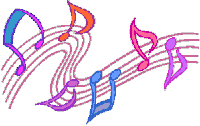WELCOME! I am happy that my book, Auditory Disorders in the Classroom: A guide for speech language pathologists, audiologists, and educators, is available through a variety of sites. I gathered a group of outstanding experts in speech and language, psychology, teachers of the deaf and hard of hearing, and educational law to produce a text that addresses important assessment and intervention methods to maximally treat children with hearing or auditory processing disorders. The book is available at: ccthomas.com, amazon.com, books.google.com, Vitalsource, and other locations. I am also incredibly pleased to be the 2020-2021 recipient of the Distinguished Clinical Achievement Award from the New Jersey Speech and Hearing Association.
Auditory Processing Disorders
There are a variety of sites dedicated to APD, some by professionals and some by non-professionals. For the most part they intend to educate or profess a certain orientation to APD. Some are excellent family support sites. Others are designed to help "sell" something. Hence, there are biases that may be related to personal experience, a desire for profit, or a professional treatment position. I have created this site to be as straightforward and unbiased as possible. I provide some basic facts about APD. Indeed, although I try to be impartial, my own biases do creep in. After reviewing all or part of the information at this site you are welcome to email me. I attempt to return my contacts as soon as possible, but I am quite busy so please be patient.
In reference to my biases, I begin with a disclaimer. After nearly 30 years of studying, researching, teaching, assessing, and treating auditory processing disorders my conception of APD has evolved. As recognized by the American Speech Language and Hearing Association and the American Academy of Audiology and written about by other specialists, disorders of listening, although they may relate to the auditory system, are strongly influenced by other cogniive and learning deficits. My belief is that APD is an overdiagnosed condition. A child who does not respond to auditory stimulation may not be doing so becasue of language processing deficits, attention and/or memory deficits, listening behaviors, or other learning or neurological weaknesses. A comprehensive APD evaluation needs to take into account the whole child and must assess non-auditory behaviors including language, executive control, attention, memory, and other sensory-motor functions.
With these thoughts in mind I hope you enjoy and gain some information from this site.
AUDITORYPROCESSING
DISORDERSFACTS
(www.apdfacts.com)
by
ALAN B. GERTNER, Ph.D. EXECUTIVE DIRECTOR AND PROFESSOR
SCHOOL OF COMMUNICATION DISORDERS & DEAFNESS
NATHAN WEISS GRADUATE COLLEGE
KEAN UNIVERSITY
UNION, NEW JERSEY
908 737 5808
agertner@kean.edu
ASHA CERTIFIED AUDIOLOGIST, BOARD CERTIFIED AUDIOLOGIST, LICENSED AUDIOLOGIST NJ & NY
FELLOW OF THE AMERICAN ACADEMY OF AUDIOLOGY

